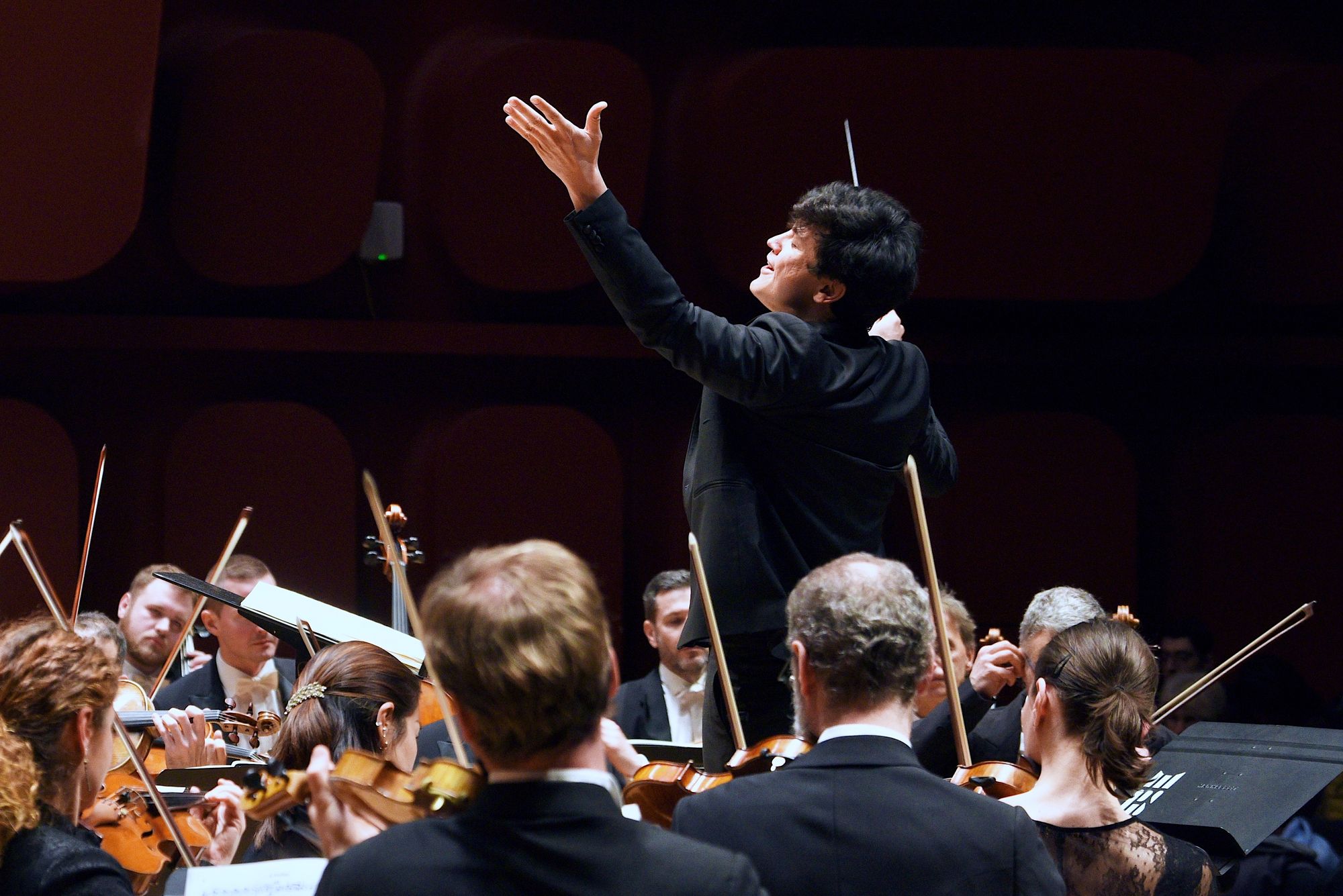Tchaikovsky 5 (x2!): Shokhakimov and Honeck

Not one but two significant releases of the same core repertoire work: Tchaikovsky's Fifth Symphony. They are well-timed, as Tchaikovsky's Fifth is still in many people's minds, surely, after Ryan Bancroft's stellar performance at this year’s Proms with the BBC National Orchestra of Wales.
Uzbek conductor Aziz Shokhakimov ahs been creating a succession of miracles in Strasbourg, most recently a Bizet Carmen (in semi-staged performance) and a simply revelatory Rimsky-Korsakov The Tale of Tsar Saltan. His affinity with Russian music is well-documented, and this latest release, of Tchaikovsky's Fifth Symphony, only serves to underline his talent.

Tchaikovsky's Fifth Symphony in E minor, Op. 64 was written in 1888. It forms part of the great final trilogy of symphonies (united via a shared ‘Fate’ motif of a descending scale - think the opening of the finale of the Sixth).
Shokhakimov's performance is full of wonders. Famous for his scrupulous approach to rehearsal, it is no surprise that chords in the opening Andante are so perfectly judged - one can just hear the care that has gone in. His sense of ebb and flow is supreme, also, while never letting momentum sag. More, Shokhakimov finds ways to remind us that Tchakivsky's material is closely related to the stage, partciularly ballet. Listen to the first movement here.
The final descent into darkness of that first movement is tracked as in few other accounts, its chthnically-oriented direction clear - and yet still one hears every element beautifully. Out of this emerges the song-like second movement. Shokhakimov has the string chords breath - it is as if each is inhaling, then exhaling - before the solo horn sings, the very epitome of instrumental cantabile. Listen to how Shokhakimov dares to take the ends of string phrases to virtual inaudibility, picking up the tread the next instant; and how the climaxes are positively cathartic. The way the basses glower under the hammer chords and the way the string pizzicatos emerge from the powerful silence thereafer is one of many miracles of this performance.
That sense of balletic lightness returns in the Valse third movement, the Strasbourg woodwind having a great time, stopped horns adding spice, a nicely reedy bassoon particularly noteworthy. The finale is powerful and unrelenting, seething, passionate. The Strasbourg winds act superbly as a unit as well as individually. One can hear Shokhakimov's attention to detail in the block writing as much as in the individual touches and solos.
The recording (Producer/Editor Daniel Zalay, Engineer/Mizing.Mastering Olivier Rosset) is superb, capturing the acoustic of the Palais de la Musique et des Congrès in Strasbourg to perfection.
Shokhakimov's coupling is the Romeo and Juliet Fantasy Overture. The field for this work is just as ferociusly contested as that of the Fifth Symphony. If this performance is not quite as white-hot as the Fifth, it contains much to receommend it. That characteristic exactitude of attack (from the strings in particular here), the revelations of detail (particularly, here, via the bassoon contributions) and the sumptuous beauty (the cor anglais doubling strings) are all present and correct, as is a massively piercing trumpet. Yet there are more exciting accounts, and the climactic timpani seems rather softened ... The Fifth moved me considerably, the Romeo and Juliet, less so.

It was a ‘pre-concert’ in Basel's Martinskirche for the Gstaad Festival in 2021 (a festival which in the end was cancelled because of coronavirus) that reminded me just how fine a conductor Manfred Honeck is: and here we have him with ‘his’ orchestra, the Pittsburgh Symphony, on Reference Classics. The review of that Basel concert is available here.
Listening to this recording after the Shokhakimov is fascinating. The recording itself has an even wider dynamic range, so be prepared for a pppppppp opening. The sound is distinctly lush, rather upholstered and with a fair amount of reverb. Honeck's command of his orchestra equals that of Shokhakimov's, yet the Strasbourg performance has more white-hot emotion to it. That said there are so many moments to admire - the Pittsburgh orchestra is a fine technical instrument, and clearly has been for a while (I last heard them live in 2000!: review). And those rasping horns!
But in Honeck's hands, the first movement just stops, rather abruptly - none of the magical link forwards Shokhakimov achieves.
His slow movement does hold both atmosphere and emotion, though, mainly due initially to the spellbinding principal horn, then prncipal oboe. And while the third movement holds grace, it holds less than the Strasbourg players seemingly effortlessly manage, occasionally verging towards a rigour that seems out of place:
It is the opening of the finale that clinches the dominance of the Shokhakimov. It drags itself along, only finding a semblance of life at the entrance of the brass. Some uncfortable woodwind spolighting just feels crass, and upper strings can take on an uncomfortable sheen.
The major interest of this disc is the Erwin Schulhoff Five Pieces (Fünf Stücke) - pieces for string quartet arranged for orchestra by Honeck himself and Tomáš Ille. Composed in 1923 and premiered in Prague in 1924, these are remarkable pieces and Honeck’s transcription is superb. Listen to the waltz, the first piece:
A clarinet tip-toes in 5/8, launching the ‘Serenata’ second movement; pulsating double-basses underpin the texture brilliantly.
The third is a riot (‘Alla Czeca’), a Czech polka, an impression of an amateur brass band, before the slinky ‘Alla Tango’:
Finally, a tarantella, with the tempo indication ‘Prestissimo con fuoco’. It’s another technicolour riot:
... and here's the original, in a live performance by the Galatea Quartet at Schloss Schönbrunn:
Superb notes by Honeck himself act as a guide to these pieces.
If only the Tchaikovsky performance matched the Schulhoff, Honeck’s disc would be a winner ... as it is, the recommendation for Tchaikovsky's Fifth falls squarely with the Orchestre philharmonique de Strasbourg on Warner.
